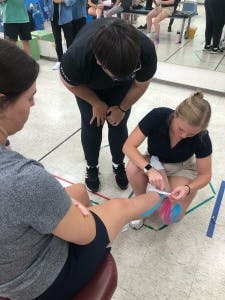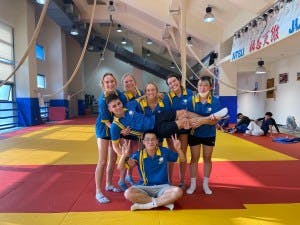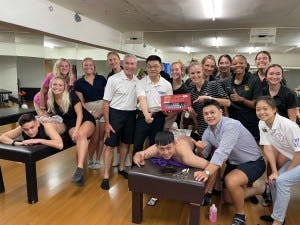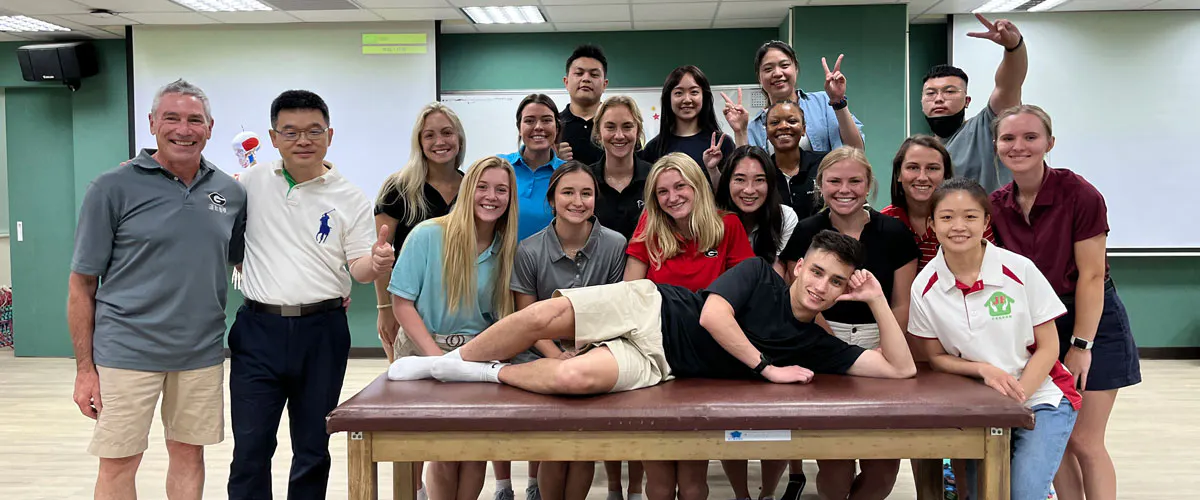A global look at sports medicine
This past summer, the Mary Frances Early College of Education’s study abroad program in Taiwan celebrated its 15-year anniversary.

The program launched in 2008 in collaboration with National Taiwan Sport University (NTSU) in Taoyuan, Taiwan, and under the leadership of former kinesiology professor Michael Ferrara.
Since then, 185 undergraduate and graduate students from 62 colleges and universities—including UGA—have participated in the program designed for athletic training and exercise science students.
“When UGA students go on the Taiwan trip, it’s not only a unique experience, but they also get to interact with students from other universities studying to be athletic trainers,” said clinical professor Bud Cooper, who currently oversees the program and is also a clinical education coordinator for the College’s master’s program in athletic training. “They also get to interact with NTSU students, so both student groups can talk about traditional Chinese medicine and interventions when treating athletes.”
For two weeks, students take part in clinical observations with NTSU athletics and go on educational tours to learn about medical practices and techniques used in Taiwan.
Students also learn about traditional Chinese therapeutic techniques used to treat athletes in sports they may not normally observe in the U.S., including judo, taekwondo, archery, table tennis, competitive weightlifting, and wushu—a competitive form of Chinese martial art.

“One of the most unique parts about the study abroad program in Taiwan was how all of the learning was extremely hands-on,” said Madeline Hoffman (B.S.Ed. ’24), an undergraduate exercise and sport science student who participated in the study abroad program last summer. “Not only were we taught the methods and science behind various rehabilitation techniques, but we were also able to practice and gain feedback on all the techniques.”
Focused on global issues in sports medicine, the program also covers traditional Asian therapies such as acupressure massage, acupuncture, pain point therapy, herbal medicine, kinesio taping, rehabilitation techniques, and fire cupping.
During mid-week excursions, students visit various locations, including Taipei 101, night markets, beaches, and more.
“I don’t know if there is another study abroad program that the Office of Global Engagement offers where the students are immersed in a situation where they’re interacting with students from the host country daily,” said Cooper. “We are immersing students not only in Taiwan’s athletic culture and their academic culture, but also their personal culture. I think it produces such a well-rounded program for them that’s unique.”

Students in the study abroad program live on campus during their stay, with many participants building lifelong relationships with their peers from NTSU and other participating universities.
For Hoffman, studying abroad in Taiwan broadened her understanding of exercise and sport science and expanded her outlook on sports medicine on a global scale.
While she’s gained different cultural perspectives and practices related to sports medicine, it’s the relationships that Hoffman’s made along the way that has made the most impact on her experience in Taiwan.
“I learned so much from the Taiwanese students and built friendships with all of them,” she said. “They encouraged and challenged us in our learning. These relationships were the most unexpected part of the program, but easily the best part. Students and faculty in the program challenged and inspired us to have more extensive knowledge in sports related injury.”
